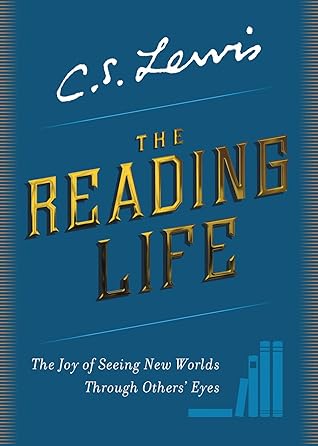More on this book
Community
Kindle Notes & Highlights
by
C.S. Lewis
Read between
April 22 - April 24, 2024
No doubt if sheer excitement is all you want from a story, and if increase of dangers increases excitement, then a rapidly changing series of two risks (that of being burned alive and that of being crushed to bits) would be better than the single prolonged danger of starving to death in a cave.
But the greatest cause of verbicide is the fact that most people are obviously far more anxious to express their approval and disapproval of things than to describe them.
Let no one say, and say it to your shame, That there was meaning here before you came.
The Hobbit, on the other hand, will be funniest to its youngest readers, and only years later, at a tenth or a twentieth reading, will they begin to realise what deft scholarship and profound reflection have gone to make everything in it so ripe, so friendly, and in its own way so true.
Almost the central theme of the book is the contrast between the Hobbits (or ‘the Shire’) and the appalling destiny to which some of them are called, the terrifying discovery that the humdrum happiness of the Shire,
But with the anguish there comes also a strange exaltation. They are at once stricken and upheld by the memory of vanished civilizations and lost splendour. They have outlived the second and third Ages; the wine of life was drawn long since.
How far Treebeard can be regarded as a ‘portrait of the artist’ must remain doubtful; but when he hears that some people want to identify the Ring with the hydrogen bomb, and Mordor with Russia, I think he might call it a ‘hasty’ word. How long do people think a world like his takes to grow?
the real life of men is of that mythical and heroic quality.
The value of the myth is that it takes all the things we know and restores to them the rich significance which has been hidden by ‘the veil of familiarity’.
By putting bread, gold, horse, apple, or the very roads into a myth, we do not retreat from reality: we rediscover it.
This book applies the treatment not only to bread or apple but to good and evil, to our endless perils, our anguish, and our joys. By dipping them in myth we see them more clearly.
I think it is possible to be strengthened by the image of the past without being either deceived or puffed up.
The schoolboy who hears them should dimly feel—though of course he cannot put it into words—that he is hearing saga.
But there is another sort of travelling and another sort of reading. You can eat the local food and drink the local wines, you can share the foreign life, you can begin to see the foreign country as it looks, not to the tourist, but to its inhabitants. You can come home modified, thinking and feeling as you did not think and feel before. So with the old literature.
that the real implications were different than you supposed, that what you thought strange was then ordinary and that what seemed to you ordinary was then strange. . . .
The shocking truth is that, while insincerity may be fatal to good writing, sincerity, of itself, never taught anyone to write well. It is a moral virtue, not a literary talent.
I’ve been reading Pride and Prejudice on and off all my life and it doesn’t wear out a bit.
But the great serious irreligious art—art for art’s sake—is all balderdash; and incidentally never exists when art is really flourishing.
‘It ceases to be a devil when it ceases to be god.’
When an artist is in the strict sense working, he of course takes into account the existing taste, interests, and capacity of his audience. These, no less than the language, the marble, or the paint, are part of his raw materials, to be used, tamed, sublimated, not ignored or defied. Haughty indifference to them is not genius or integrity; it is laziness and incompetence.
The first demand any work of any art makes upon us is surrender. Look. Listen. Receive. Get yourself out of the way. (There is no good asking first whether the work before you deserves such a surrender, for until you have surrendered you cannot possibly find out.)
When one has read a book, I think there is nothing so nice as discussing it with some one else—even though it sometimes produces rather fierce arguments.
It is the immemorial privilege of letter-writers to commit to paper things they would not say: to write in a more grandiose manner than that in which they speak: and to enlarge upon feelings which would be passed by unnoticed in conversation.
.You are in an abstract world of gallantry and adventure which has no roots—no connection with human nature or mother earth.
I don’t think there is a single passage to show that Dumas had ever seen a cloud, a road, or a tree.
For poetry too is a little incarnation, giving body to what had been before invisible and inaudible.
He brings up a whole light artillery of mythology, and gets tired of each piece almost before he has fired it.
The most interesting thing that has happened to me since I last wrote is reading War and Peace. . . . It has completely changed my view of novels.
The way for a person to develop a style is (a) to know exactly what he wants to say, and (b) to be sure he is saying exactly that.
Lewis highly values re-reading old books, even books from childhood. Which books have you re-read, and why did you choose to re-read them? Which books have you read more than twice? How have these books affected you?


